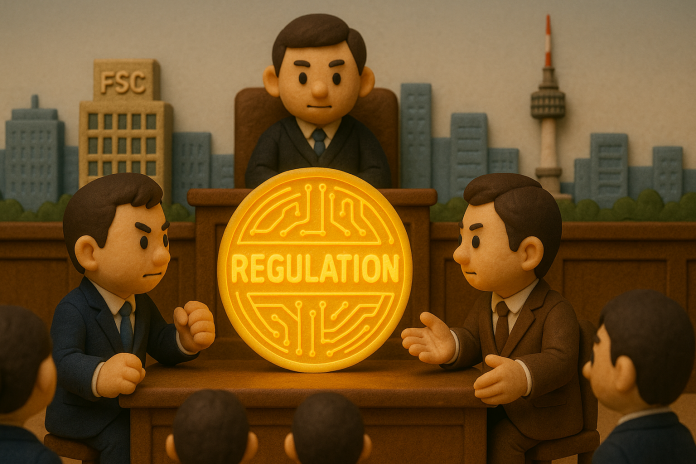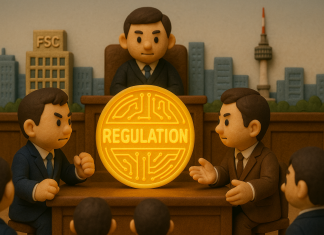
The Financial Services Commission (FSC) of South Korea has announced plans to shift the management of crypto-asset exchange listings from a self-regulatory framework to a public regulatory regime. The new approach will legally define listing and delisting criteria, as well as disclosure procedures, marking a major step in the second phase of the “Digital Asset Basic Act.” The move aims to enhance transparency and protect investors in a market long criticized for opaque listing standards.
On October 20, the FSC stated that “procedures related to exchange listings, which have been left to the private sector, will now be legislated.” The new rules will establish legal standards for listing, delisting, and trading suspensions, placing them under public oversight. Issuers will also be required to provide disclosures so investors can verify token issuance structures, circulation volumes, and financial soundness in advance.
Under the new system, each exchange must create listing regulations and file them with the financial authorities. Tokens failing to meet the required conditions will not be eligible for listing. The reform directly addresses recent controversies over weak screening processes and potential conflicts of interest in token listings, with the goal of improving overall trust in the domestic crypto market.
The FSC also plans to replace the term “virtual assets” with “digital assets” to align with global standards, incorporating the concept of distributed ledger technology into the legal definition. In parallel, the commission will strengthen oversight of stablecoins by introducing an issuer licensing system and requiring reserves of at least 100 percent in highly liquid assets such as deposits and government bonds.
This shift toward public regulation is expected to strengthen both market stability and investor protection. While self-regulation offered flexibility, it also allowed information asymmetry and inconsistent listing reviews. The new framework may limit some of that autonomy but aims to ensure a fairer and safer environment for all participants.
The FSC emphasized that “the digital-asset market will be designed in line with institutional finance without stifling innovation.” Industry observers expect the second phase of the Digital Asset Basic Act to be submitted to the National Assembly next year, paving the way for a complete overhaul of how Korean exchanges handle listings and disclosures.






